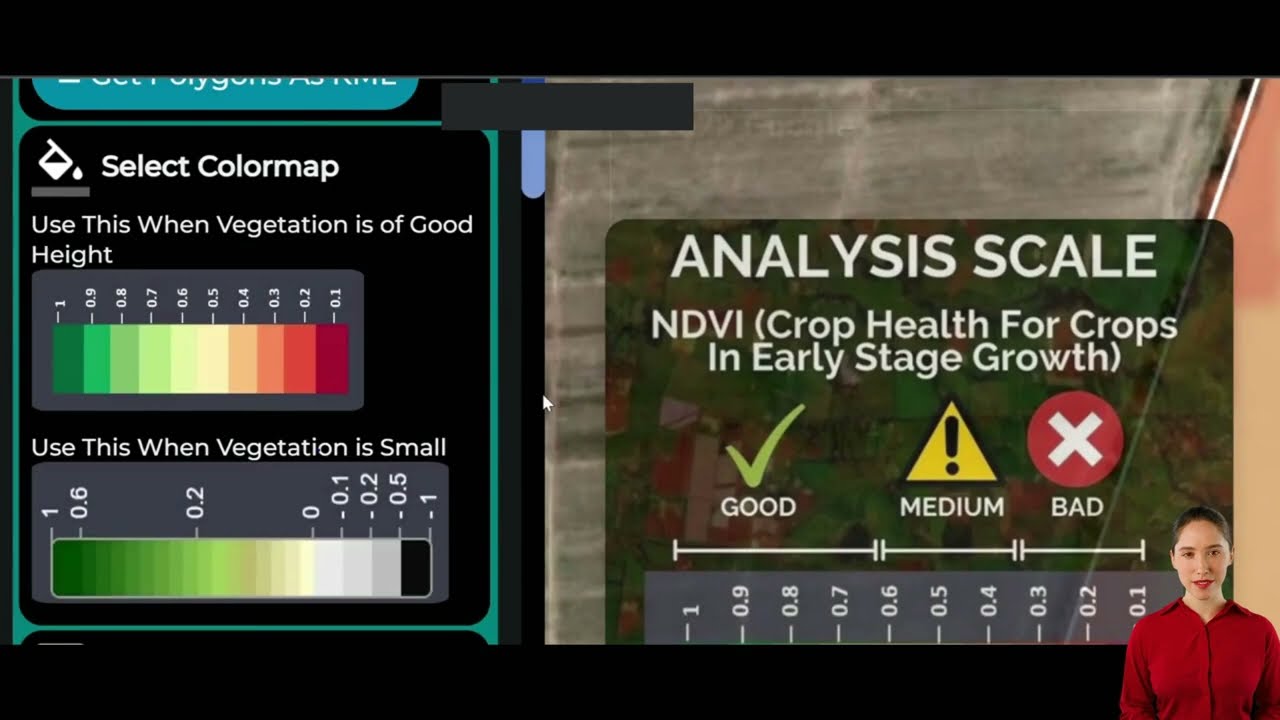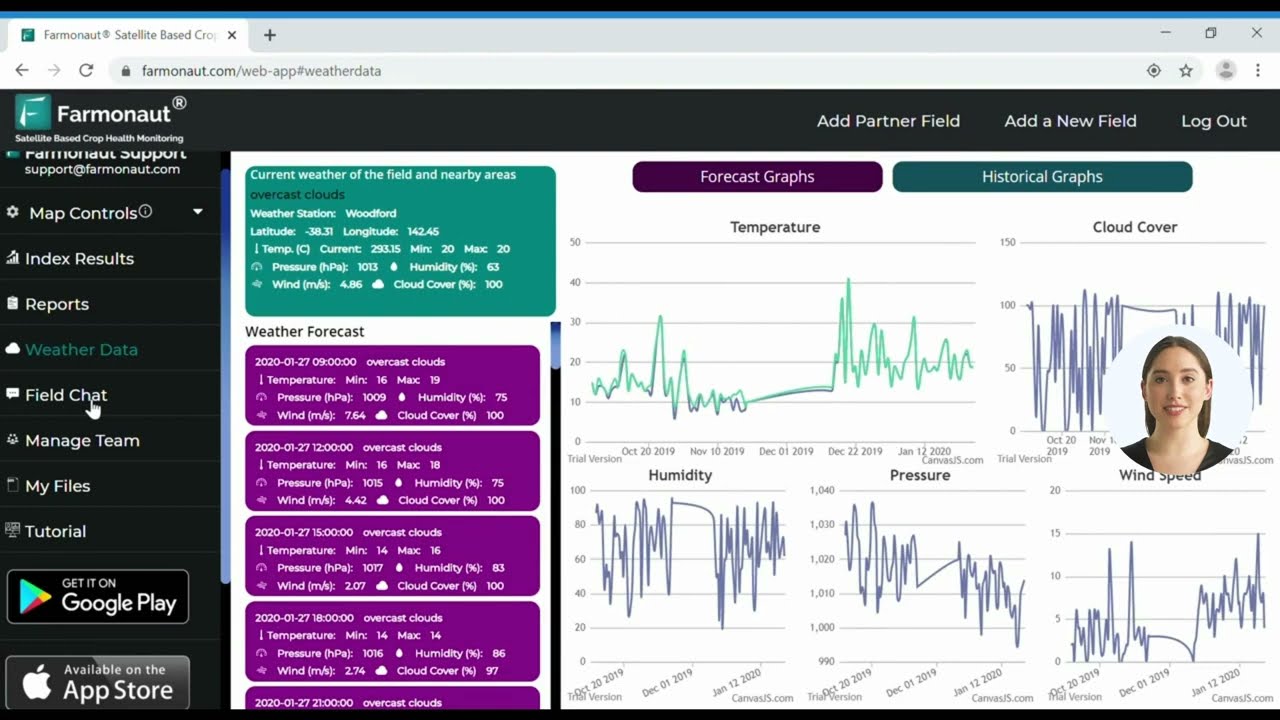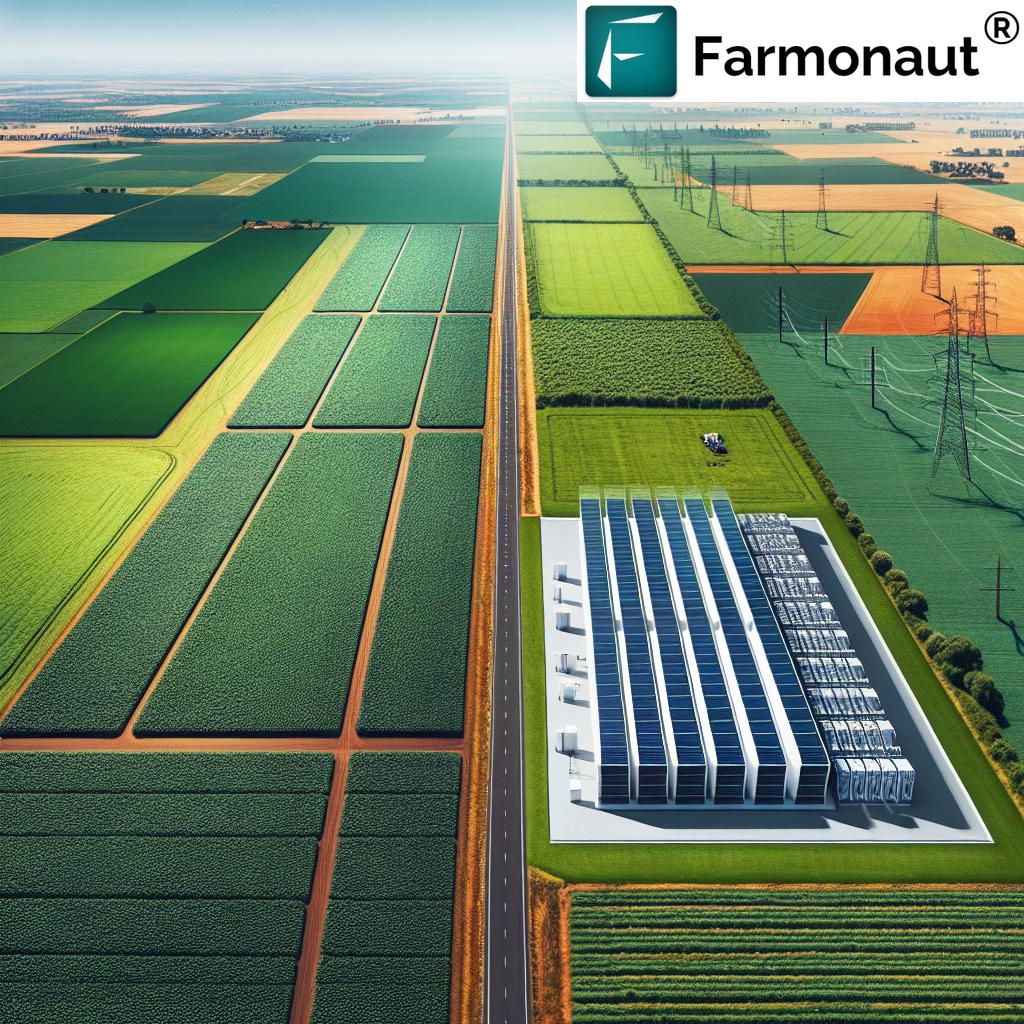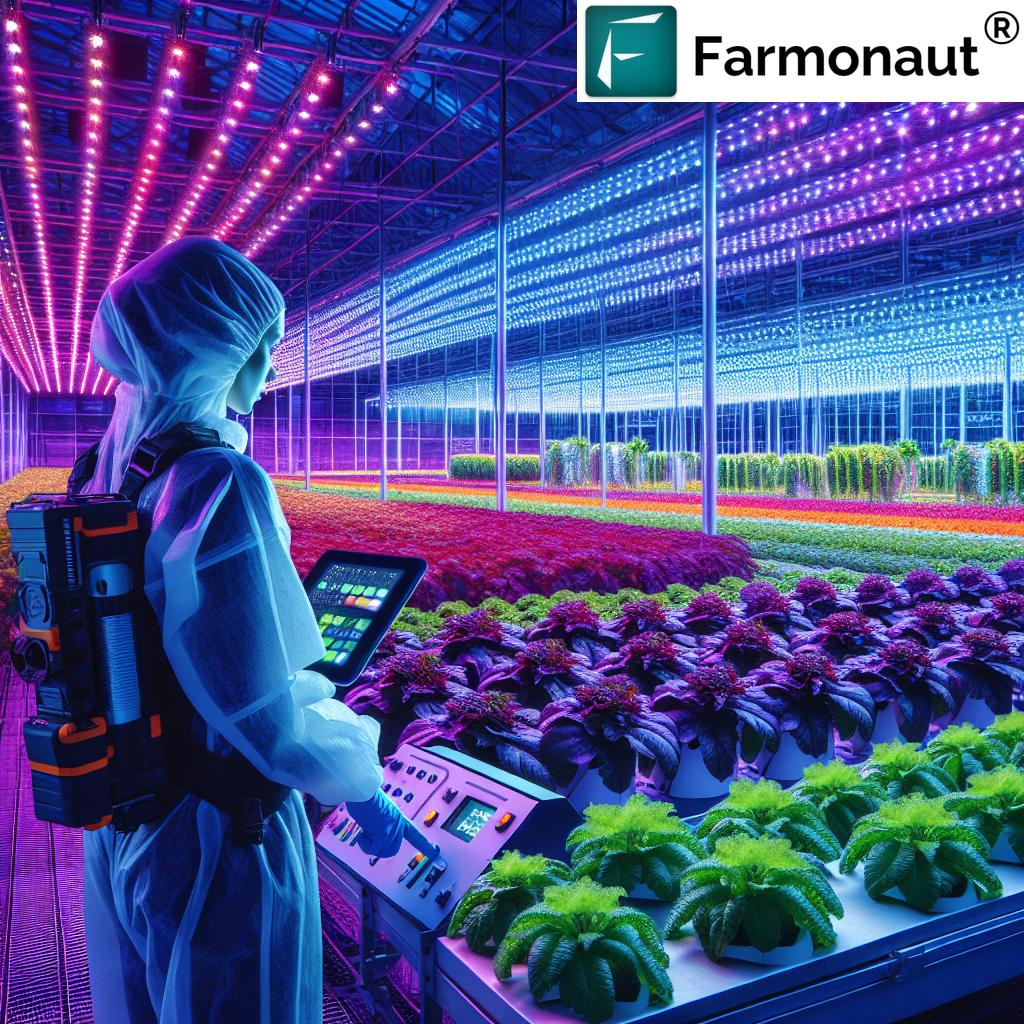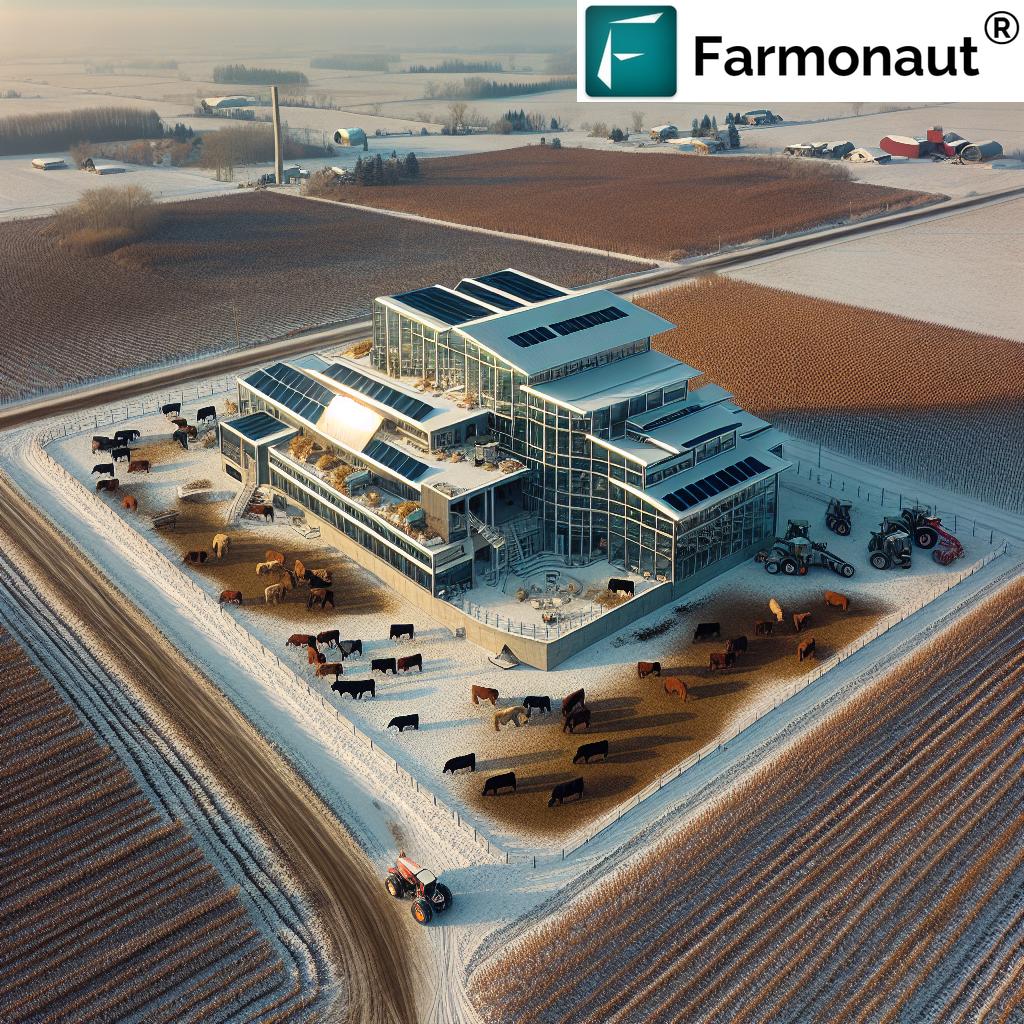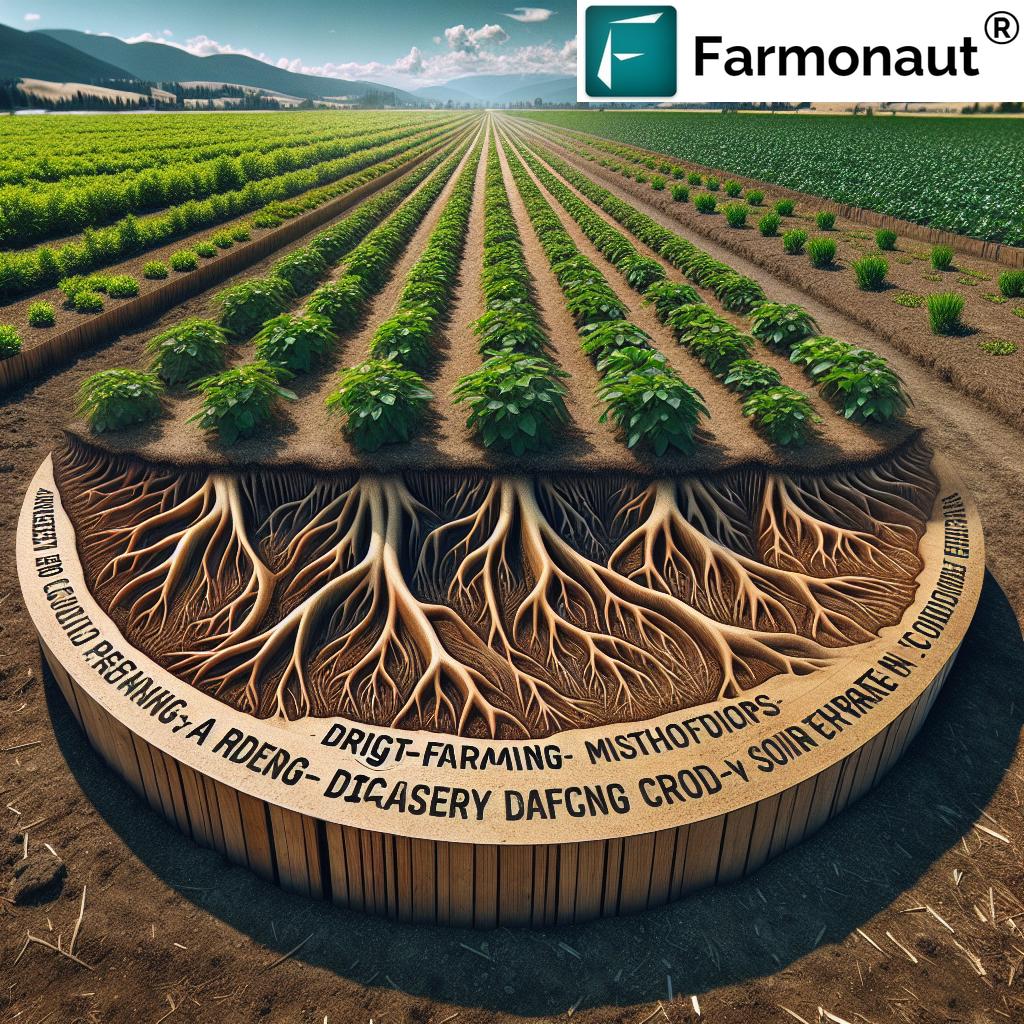Winnipeg’s $13M Boost: Global Agriculture Technology Center to Revolutionize Canadian Grain Trade
“Winnipeg’s $13 million investment is part of a larger $100 million project to establish a global agriculture technology center.”
In a groundbreaking move that promises to reshape the landscape of Canadian agriculture, Winnipeg, Manitoba, is set to become a global powerhouse in agricultural technology. The provincial government’s recent announcement of a $13 million investment marks the beginning of an exciting new chapter for the Canadian grain trade. This substantial funding is part of a larger $100 million initiative aimed at establishing a state-of-the-art Global Agriculture Technology Center in downtown Winnipeg.
As we delve into the details of this transformative project, we’ll explore how it’s poised to revolutionize grain trading innovations, expand international grain markets, and solidify Manitoba’s position as a leading agricultural hub. Join us as we uncover the far-reaching implications of this investment for Canadian agricultural exports, job creation, and the future of the cereals industry.
The Vision Behind Winnipeg’s Agricultural Revolution
At the heart of this ambitious project lies a vision to create a world-class facility that will serve as a nexus for agricultural innovation, research, and international trade. The Global Agriculture Technology Center is designed to be more than just a building; it’s conceived as an ecosystem that will foster collaboration, drive technological advancements, and propel Canadian agriculture into a new era of global competitiveness.

The facility, strategically located in downtown Winnipeg, will house:
- State-of-the-art offices for agricultural technology companies and research institutions
- Advanced training spaces to nurture the next generation of agricultural experts
- Cutting-edge research laboratories equipped with the latest technology
- Collaborative areas designed to facilitate agricultural technology exchange
This comprehensive setup is geared towards driving innovation in the grain sector, enhancing Manitoba’s grain production capabilities, and strengthening agricultural trade relations on a global scale.
The Strategic Importance of the $13 Million Investment
The provincial government’s decision to inject $13 million into this project is a clear indication of its commitment to positioning Manitoba at the forefront of agricultural innovation. This investment is crucial for several reasons:
- Catalyzing Further Investment: The initial $13 million is expected to attract additional funding from private sector partners and potentially the federal government, bringing the total project value to $100 million.
- Job Creation and Economic Growth: The center will create high-skilled jobs in agriculture, technology, and research sectors, contributing to Manitoba’s economic prosperity.
- Enhancing Global Competitiveness: By fostering innovation and collaboration, the center will help Canadian grain producers stay ahead in the global market.
- Addressing Trade Challenges: In the face of ongoing trade tensions with the United States and China, this initiative aims to diversify and strengthen Canada’s international trading partnerships.
Premier Wab Kinew emphasized the significance of this investment, stating that the center will “help showcase Manitoba’s grains and drive up global demand for Canadian products.” This strategic move is not just about boosting the local economy; it’s about securing Manitoba’s place on the global agricultural stage.
Revolutionizing Grain Trading Innovations
One of the primary focuses of the Global Agriculture Technology Center will be to spearhead innovations in grain trading. In an era where technology is reshaping every aspect of agriculture, from field to market, Winnipeg is positioning itself as a hub for cutting-edge solutions that will transform how grain is traded globally.
Here are some ways the center is expected to revolutionize grain trading:
- Advanced Market Analytics: Utilizing big data and artificial intelligence to predict market trends and optimize trading strategies.
- Blockchain-based Trading Platforms: Implementing secure, transparent, and efficient trading systems that can streamline transactions and reduce fraud.
- Real-time Quality Assessment Tools: Developing technologies that can accurately assess grain quality in real-time, facilitating faster and more precise trading decisions.
- Virtual Reality Trading Floors: Creating immersive environments where traders can visualize and interact with global market data in unprecedented ways.
These innovations are not just theoretical concepts; they represent the future of grain trading that the center aims to bring to reality. By fostering an environment where technology developers, grain traders, and agricultural experts can collaborate, Winnipeg is setting the stage for a revolution in how grain is bought, sold, and moved across the globe.
Expanding International Grain Markets
A key objective of the Global Agriculture Technology Center is to expand Canada’s reach in international grain markets. With the world’s population growing and climate change affecting global food security, the demand for high-quality grains is on the rise. Winnipeg’s new center is perfectly positioned to help Canadian producers capitalize on these opportunities.
“The new facility in downtown Winnipeg aims to protect jobs and boost Canada’s cereals industry amidst international trade tensions.”
Here’s how the center plans to facilitate international market expansion:
- Market Intelligence Hub: Creating a centralized platform for gathering and analyzing global market data to identify new opportunities for Canadian grain exports.
- Trade Facilitation Services: Offering support to Canadian grain producers and exporters in navigating international trade regulations and establishing new business relationships.
- Quality Assurance Programs: Developing and implementing advanced quality control measures to ensure Canadian grains meet and exceed international standards.
- Digital Marketing Initiatives: Leveraging digital platforms to showcase Canadian grains to international buyers and promote the country’s reputation for high-quality agricultural products.
By focusing on these areas, the center aims to not only maintain Canada’s strong position in existing markets but also to break into new and emerging markets across the globe. This expansion is crucial for the long-term sustainability and growth of the Canadian grain industry.
Strengthening Manitoba’s Position as an Agricultural Hub
The establishment of the Global Agriculture Technology Center in Winnipeg is set to cement Manitoba’s status as a leading agricultural hub, not just within Canada, but on the world stage. This initiative builds on the province’s rich agricultural heritage and leverages its existing strengths to create a powerhouse of innovation and expertise.

Key aspects of this strengthening include:
- Talent Attraction and Retention: The center will attract top talent in agricultural science, technology, and business, creating a cluster of expertise in Winnipeg.
- Research and Development Focus: By providing state-of-the-art facilities for R&D, the center will drive innovation in crop sciences, agronomy, and agricultural technology.
- Industry-Academia Collaboration: Partnerships between the center, local universities, and industry players will foster a dynamic ecosystem of knowledge exchange and innovation.
- Economic Diversification: The center will contribute to diversifying Manitoba’s economy, reducing reliance on traditional sectors and positioning the province as a knowledge-based agricultural powerhouse.
This strategic positioning will not only benefit Manitoba but will have ripple effects across the Canadian agricultural sector, elevating the country’s status in the global agricultural community.
Addressing Trade Challenges and Protecting Canadian Jobs
In an era of increasing global trade tensions, particularly with major partners like the United States and China, the Global Agriculture Technology Center plays a crucial role in safeguarding Canadian interests. By focusing on innovation and market diversification, the center aims to protect existing jobs in the agricultural sector while creating new opportunities for growth.
Here’s how the center plans to address these challenges:
- Diversification of Export Markets: Reducing reliance on any single market by exploring and developing new international trade partnerships.
- Value-Added Product Development: Investing in research to create high-value grain products that can command premium prices in global markets.
- Trade Policy Expertise: Building a team of experts to navigate complex international trade agreements and advocate for Canadian interests.
- Technology-Driven Competitiveness: Leveraging cutting-edge technologies to improve efficiency and reduce production costs, making Canadian grains more competitive globally.
By focusing on these strategies, the center aims to insulate the Canadian grain industry from the volatility of international trade disputes while creating a more resilient and dynamic sector capable of thriving in a challenging global environment.
The Role of Technology in Transforming Canadian Agriculture
At the core of the Global Agriculture Technology Center’s mission is the integration of cutting-edge technology into every aspect of the grain industry. This focus on technological innovation is set to transform Canadian agriculture, making it more efficient, sustainable, and competitive on the global stage.
Key technological advancements being pursued include:
- Precision Agriculture: Utilizing satellite imagery, drones, and IoT sensors to optimize crop management and increase yields. Companies like Farmonaut are at the forefront of this technology, offering satellite-based crop health monitoring solutions that can revolutionize farm management practices.
- Artificial Intelligence in Crop Forecasting: Developing AI models that can predict crop yields, market trends, and potential risks with unprecedented accuracy.
- Blockchain for Supply Chain Transparency: Implementing blockchain technology to enhance traceability and build trust in the grain supply chain. Farmonaut’s traceability solutions offer a glimpse into how this technology can ensure transparency from farm to consumer.
- Robotics and Automation: Integrating advanced robotics into farming and processing operations to increase efficiency and reduce labor costs.
- Climate-Smart Agriculture: Developing technologies to help farmers adapt to and mitigate the effects of climate change on crop production.
These technological advancements are not just theoretical concepts; they represent real solutions that are being developed and implemented to address the challenges facing the agricultural sector. By investing in these technologies, the Global Agriculture Technology Center is positioning Canada at the forefront of agricultural innovation.
Enhancing Agricultural Trade Relations
The establishment of the Global Agriculture Technology Center in Winnipeg is set to play a pivotal role in enhancing Canada’s agricultural trade relations worldwide. By creating a hub for innovation, research, and international collaboration, the center will open new doors for Canadian grain producers and strengthen existing trade partnerships.
Key strategies for enhancing trade relations include:
- International Collaboration Programs: Establishing partnerships with similar institutions around the world to facilitate knowledge exchange and joint research initiatives.
- Trade Missions and Exhibitions: Organizing and participating in international trade events to showcase Canadian grain products and technologies.
- Digital Trade Platforms: Developing online platforms that connect Canadian producers directly with international buyers, streamlining the trade process.
- Capacity Building in Emerging Markets: Offering training and technology transfer programs to help developing countries improve their agricultural practices, creating goodwill and opening new markets for Canadian exports.
These initiatives will not only help to diversify Canada’s export markets but also position the country as a trusted partner in global food security efforts. By leveraging the expertise and resources of the Global Agriculture Technology Center, Canada can build stronger, more resilient trade relationships that benefit the entire agricultural sector.
Boosting Manitoba’s Grain Production Capabilities
The Global Agriculture Technology Center is not just about trading and marketing; it’s also focused on enhancing Manitoba’s grain production capabilities. By bringing together cutting-edge research, advanced technologies, and practical farming expertise, the center aims to significantly boost the quantity and quality of grain produced in the province.
Key areas of focus for improving grain production include:
- Advanced Crop Breeding: Developing new grain varieties that are more resilient to pests, diseases, and climate change while offering higher yields and nutritional value.
- Precision Agriculture Techniques: Implementing advanced farming techniques that optimize resource use and maximize yields. Farmonaut’s crop plantation and forest advisory services offer valuable insights into how precision agriculture can be applied to improve crop management and yield optimization.
- Soil Health Management: Researching and promoting practices that enhance soil fertility and structure, ensuring long-term sustainability of grain production.
- Water Management Solutions: Developing innovative irrigation and water conservation technologies to address water scarcity issues and improve crop resilience.
- Integrated Pest Management: Creating environmentally friendly and effective pest control strategies to protect grain crops without relying heavily on chemical pesticides.
By focusing on these areas, the Global Agriculture Technology Center will help Manitoba’s farmers produce higher quality grains more efficiently, strengthening the province’s position as a key player in the global grain market.
Facilitating Agricultural Technology Exchange
One of the most exciting aspects of the Global Agriculture Technology Center is its role as a hub for agricultural technology exchange. By bringing together researchers, farmers, technology developers, and industry experts under one roof, the center will create an environment ripe for innovation and collaboration.
Key initiatives to facilitate technology exchange include:
- Technology Incubator Programs: Providing resources and support for agtech startups to develop and commercialize their innovations.
- Farmer-Scientist Collaborations: Creating platforms for direct interaction between farmers and researchers to ensure that technological developments address real-world agricultural challenges.
- International Exchange Programs: Hosting visiting scholars and experts from around the world to share knowledge and best practices.
- Open Data Initiatives: Establishing databases and platforms for sharing agricultural data, fostering collaborative research and innovation.
- Annual AgTech Symposiums: Organizing yearly events to showcase the latest agricultural technologies and facilitate networking among industry stakeholders.
These initiatives will not only accelerate the pace of innovation in Canadian agriculture but also position Winnipeg as a global leader in agricultural technology development and dissemination.
Impact on the Canadian Cereals Industry
The establishment of the Global Agriculture Technology Center is set to have a profound impact on the Canadian cereals industry. As one of the world’s leading producers and exporters of cereals, Canada stands to benefit significantly from the innovations and strategies developed at this center.
Here’s a detailed look at how the center will influence various aspects of the cereals industry:
| Impact Area | Current Status | Projected Improvement | Long-term Benefits |
|---|---|---|---|
| Grain Trading Innovation | Traditional trading methods with limited technological integration | 50% increase in blockchain-based trades within 3 years | More efficient, transparent, and secure grain trading ecosystem |
| International Market Expansion | Heavy reliance on few key markets | 30% increase in export destinations within 5 years | Reduced market vulnerability and increased global market share |
| Job Creation | Limited high-tech jobs in agricultural sector | Creation of 500+ new jobs in agtech within 2 years | Establishment of Winnipeg as a major agtech employment hub |
| Research & Development | Scattered R&D efforts across various institutions | 100% increase in patented agtech innovations within 4 years | Positioning Canada as a global leader in agricultural innovation |
| Agricultural Technology Exchange | Limited platforms for knowledge sharing | Hosting of 10+ international agtech conferences annually | Enhanced global collaboration and faster adoption of new technologies |
This table clearly illustrates the transformative potential of the Global Agriculture Technology Center across various aspects of the Canadian cereals industry. From boosting innovation in grain trading to creating new job opportunities and fostering international collaboration, the center is poised to drive significant improvements in the sector.
Leveraging Technology for Sustainable Agriculture
In an era where sustainability is paramount, the Global Agriculture Technology Center will play a crucial role in developing and implementing eco-friendly farming practices. By leveraging cutting-edge technology, the center aims to make Canadian agriculture more sustainable without compromising productivity.
Key focus areas for sustainable agriculture include:
- Precision Resource Management: Utilizing advanced sensors and AI to optimize the use of water, fertilizers, and pesticides, reducing waste and environmental impact.
- Carbon Footprint Reduction: Developing technologies to measure and reduce the carbon footprint of grain production. Farmonaut’s carbon footprinting solutions offer valuable insights into how technology can help monitor and reduce emissions in agriculture.
- Renewable Energy Integration: Researching ways to incorporate renewable energy sources into farming operations, reducing reliance on fossil fuels.
- Soil Health Monitoring: Creating advanced soil testing and monitoring systems to maintain soil fertility and prevent degradation.
- Biodiversity Preservation: Developing farming techniques that promote biodiversity and protect local ecosystems.
By focusing on these areas, the Global Agriculture Technology Center will help ensure that Canadian agriculture remains competitive while also becoming more environmentally sustainable.
Financial Implications and Future Funding
The initial $13 million investment from the Manitoba government is just the beginning of what promises to be a significant financial commitment to the Global Agriculture Technology Center. As Premier Wab Kinew indicated, the province is likely to contribute more funds in the future, potentially covering up to a third of the final cost if the federal government also gets involved.
Here’s a breakdown of the financial aspects:
- Initial Investment: $13 million from the provincial government
- Total Project Value: Estimated at $100 million
- Potential Future Funding: Additional provincial funds, possible federal contribution, and private sector investments
- Return on Investment: Expected to generate significant economic benefits through job creation, increased exports, and technological advancements
The center’s financial model is designed to be sustainable in the long term, with revenue generated through research grants, technology licensing, and partnership programs. This approach ensures that the center can continue to drive innovation and support the Canadian grain industry well into the future.
Collaboration Opportunities for Farmers and Agribusinesses
The Global Agriculture Technology Center is not just for researchers and scientists; it’s designed to be a valuable resource for farmers and agribusinesses across Canada. The center will offer numerous opportunities for collaboration and engagement with the agricultural community.
Key collaboration opportunities include:
- Farmer Advisory Boards: Establishing committees where farmers can provide input on research priorities and technology development.
- Field Testing Programs: Offering farmers the chance to test new technologies and varieties on their farms, providing real-world feedback.
- Training and Workshops: Hosting regular training sessions on new farming techniques and technologies.
- Agribusiness Partnerships: Creating opportunities for agribusinesses to collaborate on research projects and technology commercialization.
- Data Sharing Initiatives: Developing platforms for farmers to share and access valuable agricultural data, enhancing decision-making across the industry.
These collaboration opportunities will ensure that the center’s work remains relevant and directly beneficial to those on the front lines of Canadian agriculture.
The Global Impact of Winnipeg’s Agricultural Revolution
While the immediate benefits of the Global Agriculture Technology Center will be felt most strongly in Manitoba and across Canada, its impact is expected to extend far beyond national borders. As a hub of innovation and research, the center has the potential to contribute significantly to global food security and agricultural sustainability.
Key areas of global impact include:
- Technology Transfer to Developing Countries: Sharing advanced agricultural technologies with nations facing food security challenges.
- Climate Change Adaptation Strategies: Developing and disseminating techniques to help farmers worldwide adapt to changing climate conditions.
- Global Food Quality Standards: Contributing to the development of international standards for grain quality and safety.
- International Research Collaborations: Fostering partnerships with agricultural institutions around the world to address global challenges.
- Sustainable Farming Practices: Promoting environmentally friendly farming methods that can be adopted globally.
Through these initiatives, Winnipeg’s Global Agriculture Technology Center will not only revolutionize Canadian agriculture but also contribute to advancing agricultural practices and food security on a global scale.
FAQ Section
Q: How will the Global Agriculture Technology Center benefit local farmers in Manitoba?
A: Local farmers will benefit from access to cutting-edge research, training programs on new technologies, and opportunities to participate in field testing of innovative agricultural solutions. The center will also work on developing crops and techniques specifically suited to Manitoba’s climate and soil conditions.
Q: Will the center create job opportunities for Manitobans?
A: Yes, the center is expected to create numerous job opportunities, ranging from high-tech research positions to administrative and support roles. It will also indirectly support job creation in related industries and services.
Q: How does this investment address the challenges posed by international trade tensions?
A: By focusing on innovation and market diversification, the center aims to make Canadian grain more competitive and less reliant on any single market. This strategy will help protect Canadian jobs and exports in the face of international trade uncertainties.
Q: What role will technology play in the center’s operations?
A: Technology will be at the core of the center’s operations, from AI-driven crop forecasting to blockchain-based supply chain management. The center will also focus on developing and implementing new agricultural technologies to improve efficiency and sustainability in farming practices.
Q: How can small-scale farmers benefit from the center’s research and innovations?
A: The center plans to develop scalable solutions that can be adapted for farms of all sizes. It will also offer training programs and resources specifically designed to help small-scale farmers implement new technologies and practices.
Conclusion: A New Era for Canadian Agriculture
The $13 million investment in Winnipeg’s Global Agriculture Technology Center marks the beginning of a new era for Canadian agriculture. By bringing together cutting-edge technology, world-class research, and industry expertise, this initiative is set to revolutionize the Canadian grain trade and strengthen the country’s position in the global agricultural landscape.
From driving innovations in grain trading to expanding international markets and enhancing sustainability, the center’s impact will be far-reaching and transformative. As we look to the future, it’s clear that this investment will not only benefit Manitoba and Canada but will also contribute significantly to addressing global challenges in food security and sustainable agriculture.
The Global Agriculture Technology Center is more than just a building; it’s a beacon of innovation that will shape the future of agriculture for generations to come. As we embark on this exciting journey, we invite farmers, researchers, agribusinesses, and technology developers to join us in ushering in a new age of agricultural excellence.
Together, we can build a more sustainable, efficient, and prosperous future for Canadian agriculture and contribute to feeding the world in the face of growing global challenges.
Earn With Farmonaut: Affiliate Program
Earn 20% recurring commission with Farmonaut’s affiliate program by sharing your promo code and helping farmers save 10%. Onboard 10 Elite farmers monthly to earn a minimum of $148,000 annually—start now and grow your income!
For more information on Farmonaut’s API services, visit our API page or check out our API Developer Docs.



